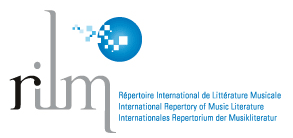Tensions between Psychology of Music and Musical Experience in Latin America
Keywords:
Psychology of Music, Musicology, Epistemic Injustice, Music TheoryAbstract
Psychology of music is a discipline built on the alliance between Musicology and Experimental Psychology emerging towards the second half of the nineteenth century. This alliance coincides, then, with the expansion of Western Europe and its totalizing perspective of knowledge based on modern science. This paper aims to argue that for this reason, the psychology of music is foundationally ethnocentric. This bias generates conditions of epistemic injustice, mainly by making invisible the nature of musical experiences located in contexts epistemologically different from those of Western music, denying epistemic sovereignty to the subject of experience. In order to exemplify this bias, three axioms of the psychology of music are discussed: the autonomy of the sound, the division of musical experience into three different praxes (audition, performance and composition), and the use of basic categories coming from Western music theory. These three axioms are discussed in terms of the effects they have on the descriptions of the musical experience. Finally, some aspects of the epistemic injustice linked to the subject of knowledge and to the conditions of production of academic knowledge are discussed.
Published
Issue
Section
License
ATTRIBUTION-NONCOMMERCIAL 4.0 INTERNATIONAL
https://creativecommons.org/licenses/by-nc/4.0/
You are free to:
- Share — copy and redistribute the material in any medium or format
- Adapt — remix, transform, and build upon the material
- The licensor cannot revoke these freedoms as long as you follow the license terms.
Under the following terms:
- Attribution — You must give appropriate credit , provide a link to the license, and indicate if changes were made . You may do so in any reasonable manner, but not in any way that suggests the licensor endorses you or your use.
- NonCommercial — You may not use the material for commercial purposes .
- No additional restrictions — You may not apply legal terms or technological measures that legally restrict others from doing anything the license permits.
Notices:
You do not have to comply with the license for elements of the material in the public domain or where your use is permitted by an applicable exception or limitation .
No warranties are given. The license may not give you all of the permissions necessary for your intended use. For example, other rights such as publicity, privacy, or moral rightsmay limit how you use the material.







